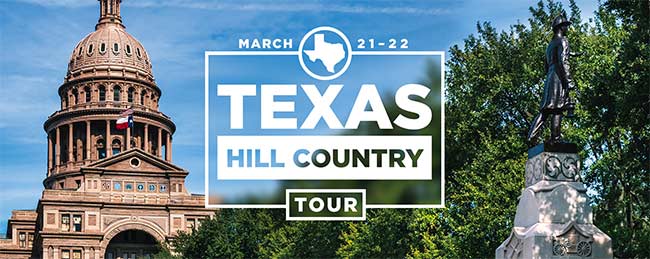
“Praise the Lord! Praise God in his sanctuary; praise him in his mighty heavens! Praise him for his mighty deeds; praise him according to his excellent greatness! Praise him with trumpet sound; praise him with lute and harp! Praise him with tambourine and dance; praise him with strings and pipe! Praise him with sounding cymbals; praise him with loud clashing cymbals! Let everything that has breath, Praise the Lord.” —Psalm 150:1-6a
The Birth of Georg Philipp Telemann,
March 14, 1681
 he Protestant Reformation produced two different approaches to worship among those who left the Roman Church. The “Calvinistic” Reformation sought a return to apostolic Christianity, developing the idea of the “regulative principle” of worship—only worship God in the way He specified regarding particulars—preaching the Gospel, singing, two sacraments, etc. As part of the reform of the Church, the “Calvinistic” reformers prohibited musical instruments from formal worship, believing that Christ had fulfilled or completed what the Levitical musicians of the Old Testament had been but a shadow, now unnecessary and absent in the Apostolic and post-apostolic Church until after the sixth Century, when the papacy introduced organs to assist in the singing. Reformed Protestants a thousand years later removed instrumentation as a papal innovation and violation of the regulative principle. he Protestant Reformation produced two different approaches to worship among those who left the Roman Church. The “Calvinistic” Reformation sought a return to apostolic Christianity, developing the idea of the “regulative principle” of worship—only worship God in the way He specified regarding particulars—preaching the Gospel, singing, two sacraments, etc. As part of the reform of the Church, the “Calvinistic” reformers prohibited musical instruments from formal worship, believing that Christ had fulfilled or completed what the Levitical musicians of the Old Testament had been but a shadow, now unnecessary and absent in the Apostolic and post-apostolic Church until after the sixth Century, when the papacy introduced organs to assist in the singing. Reformed Protestants a thousand years later removed instrumentation as a papal innovation and violation of the regulative principle.
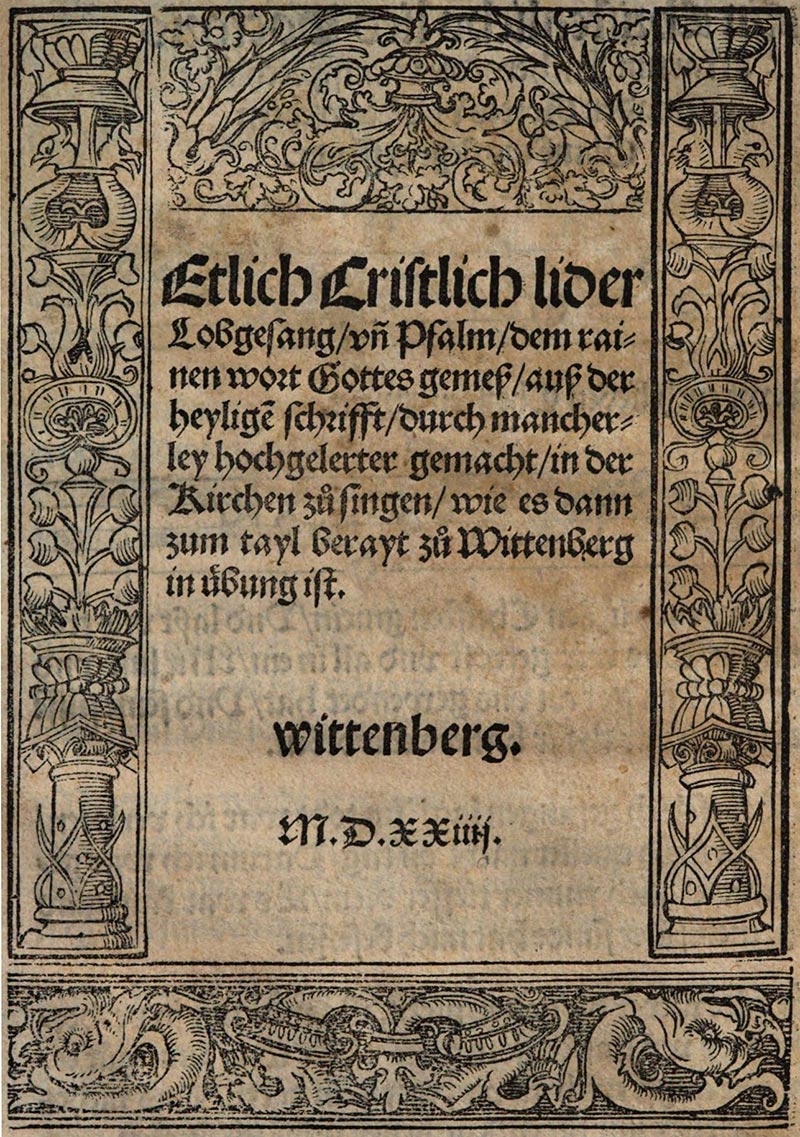
The title page to the First Lutheran Hymnal, published in Wittenberg, 1523/24
The other Protestant branch, following Martin Luther, were not interested in jettisoning the use of musical instruments, even though their deployment and development within the Roman Church had reached a complex combination of musical instrumentation through the Middle Ages, especially the use of organs. While both Protestant groups believed whole-heartedly in congregational singing in worship, especially the Psalms, Lutherans were quite willing to keep instrumentation as a help. They believed that if not specifically prohibited in the Bible, extra-biblical worship practices were (technically) allowed. Both traditions developed theological arguments supporting their beliefs regarding music in worship.
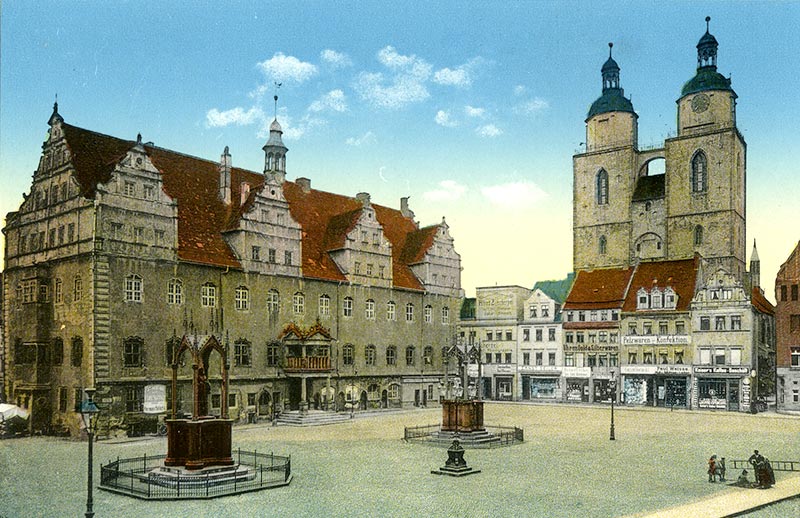
A 1913 postcard of Wittenberg, showing Wittenberg Market with town hall in the center left and the Stadtkirche Wittenberg (Luther’s preaching church) towering on the right. Two memorials can also be seen in the square, one to Luther and one to Melanchthon.
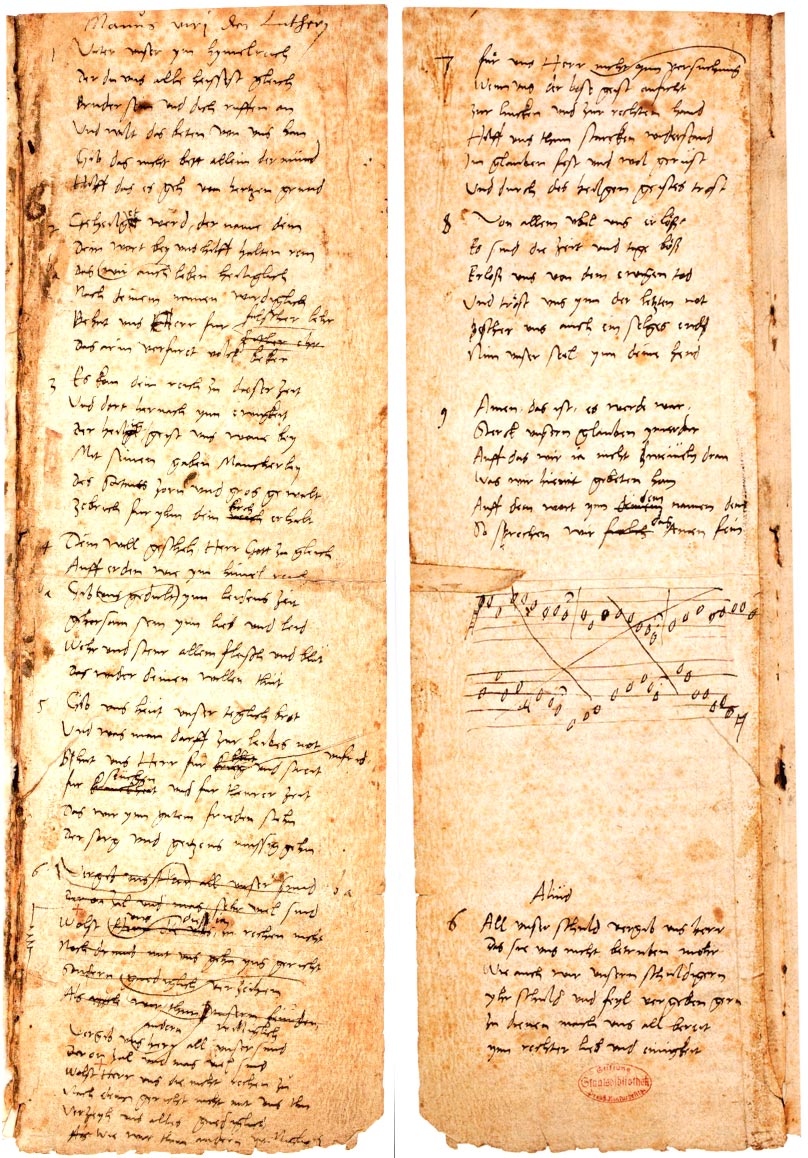
A copy of Luther’s “Vater unser im Himmelreich” (The Lord’s Prayer)
in Luther’s handwriting
|
Martin Luther had been somewhat of a musician himself, playing several instruments, singing, and writing hymns. He saw music, sung in the vernacular, as a sanctifying means God used in praise and spreading the Gospel. “There are, without doubts, in the human heart many seed-grains of precious virtue which are stirred up by music.“* Both singing by the laity and the use of instrumental music in Lutheran worship became well-established in the centuries following the Reformer’s ministry. Because of Luther’s “intense interest in music and because of his philosophy concerning its nature, import, and purposes . . . a host of [professional musicians] have been encouraged and impelled to write some of the world’s greatest music.”(ibid.) One of the greatest of his musical “descendants,” Georg Philipp Telemann, was born March 14, 1681.
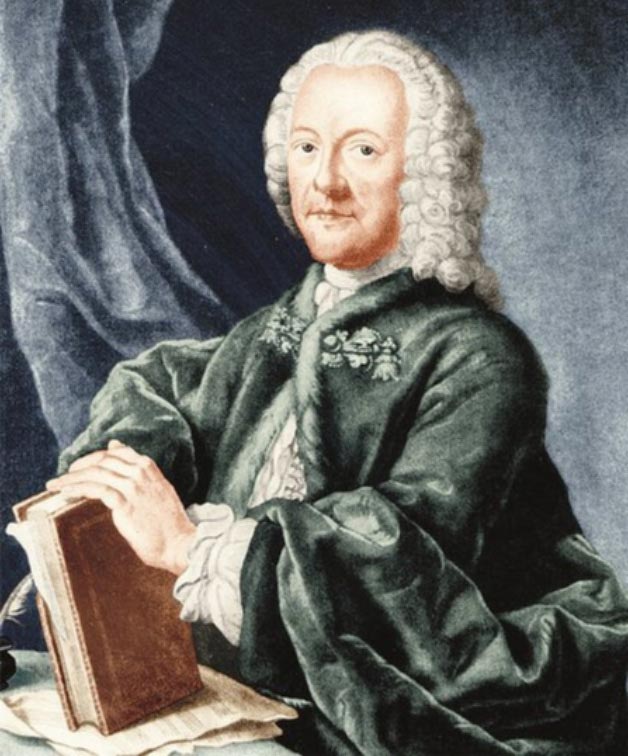
Georg Philipp Telemann (1681-1767)
Telemann was the son of a Lutheran minister, receiving a good general education, but not including any musical lessons. He nonetheless expressed serious musical gifts as a young man and had to overcome family resistance to his becoming a professional musician—a calling with little or no compensation for most practitioners. He enrolled in the University of Leipzig to study law, but his musical talents compelled him to pursue those interests the rest of his life. The municipal authorities of the city recognized Telemann’s “energy, diligence, and talent for organization” as well as his extraordinary musical talents, and commissioned him to assist the organist of the Thomaskirche in composing church contatas for alternate Sundays.** He was soon awarded the position of chapel organist for the university.
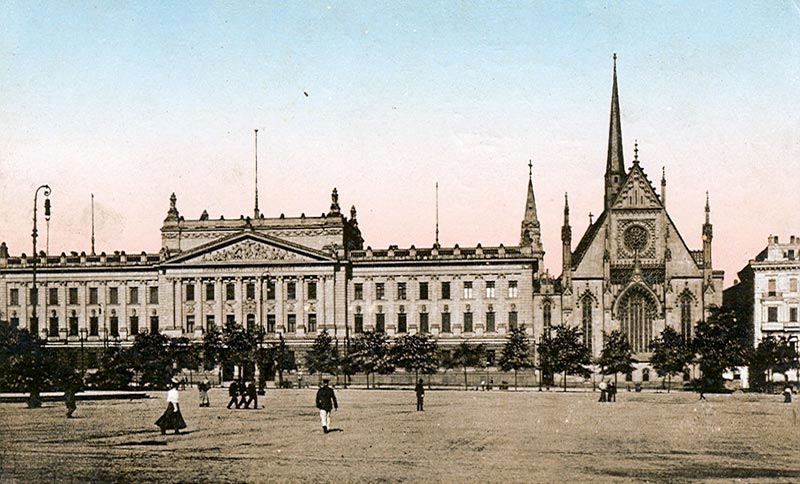
Leipzig University’s main building as it was in 1917; it was demolished by the socialist administration in 1968

A sketch of the Leipzig Opera House as it would have appeared in Telemann’s day
|
Telemann reorganized the student musical society into an excellent amateur orchestra and presented public concerts, a novel innovation that enhanced his rising reputation. He began writing music for the Leipzig Opera and was appointed director, no doubt the youngest on record. The self-taught musical genius came to the attention of two princely courts, both of whom hired him to become Kapellmeister (conductor) of their court orchestras. He served as 1st violin and concertmaster in Eisenach for four years (age 27-31). Playing, conducting, and composing gave him the practical knowledge that vaulted him to the very peak of musical excellence in the German states, resulting in his musical directorship of major churches and the music of the city orchestras and operas in Frankfurt am Main and Hamburg, one of the most prestigious of the German cities. His compositions and skills carried his name abroad as he became one of the premier Protestant composers of the 18th Century. He supplied music to multiple civil jurisdictions and his compositions travelled abroad.

Thomaskirche, Leipzig
|
|
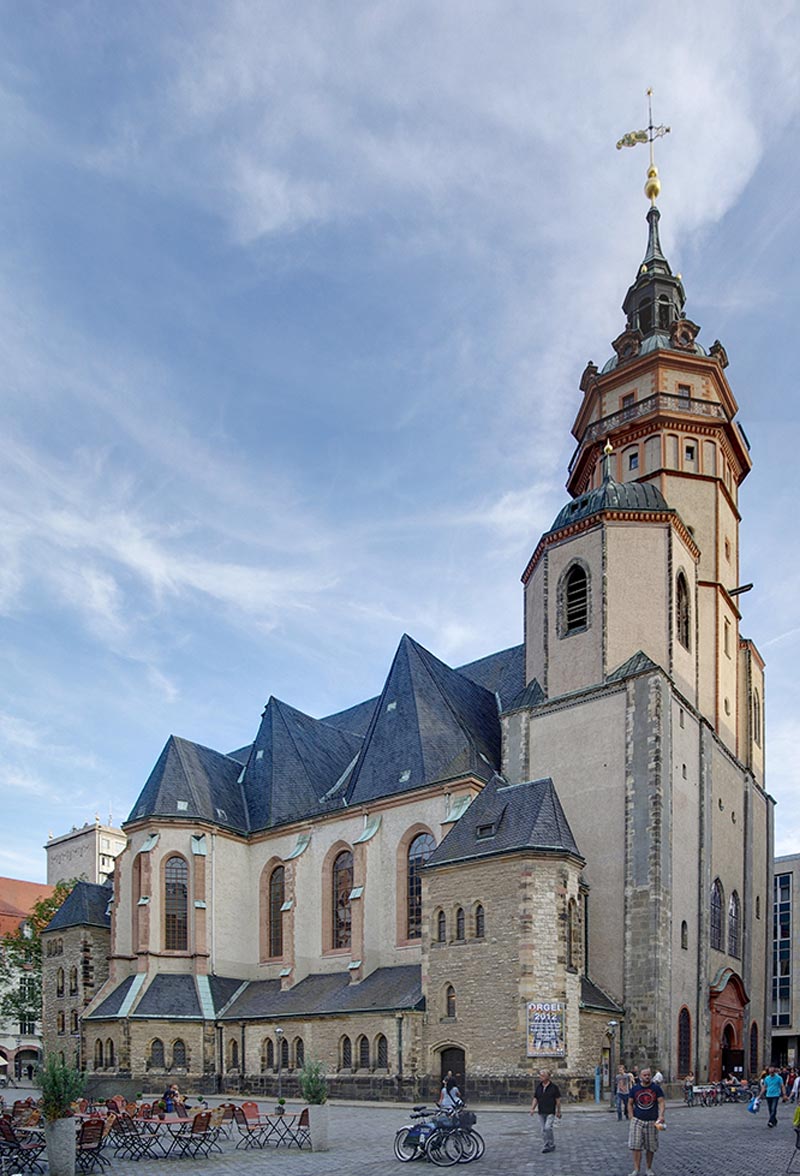
Nikolaikirche, Leipzig
|
Telemann wrote with ease and fluency in the three major styles of his time—German, Italian and French—and with equal facility for churches, operas, and concert orchestras. He married twice, fathered eleven children and wrote two autobiographies. But for one brief trip to France, Telemann never left Germany. He was a friend of Bach and Handel, and godfather to Bach’s son Carl Philipp Emanuel, who succeeded him as musical director of Hamburg. He died at the almost unheard-of age of 86 in 1767, still composing and publishing at the end of his life.
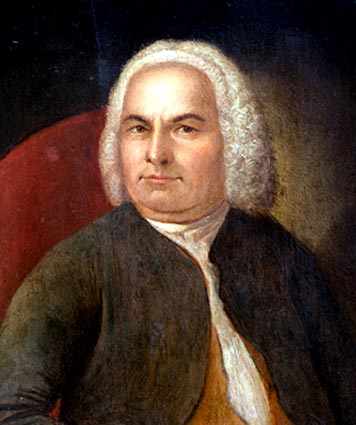
Johann Sebastian Bach (1685-1750)
|
|

Carl Philipp Emanuel Bach (1714-1788)
|
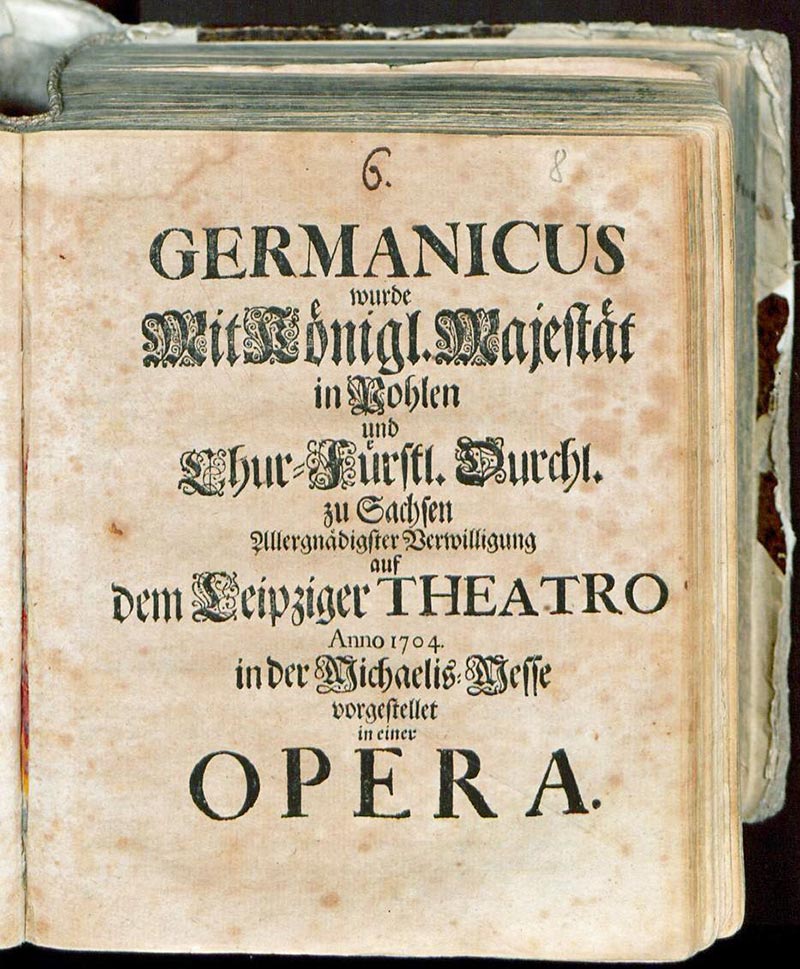
A textbook for Telemann’s Germanicus opera
|
Telemann’s contemporaries considered him the greatest living composer of the 18th Century; the dreaded critic Johann Mattheson wrote of him that “Telemann is above all praise.” Through his public concerts, Telemann “introduced to the general public music previously reserved for the court, the aristocracy, or a limited number of burghers. His enormous output of publications provided instrumental and vocal material for Protestant churches throughout Germany.” He was, in fact, most admired for his church compositions—representing the flowering of Martin Luther’s musical seeds more than two hundred years after the Reformer. He composed music for soloists and for smaller congregations who could not afford the larger musical pieces.
While Bach and Handel eclipsed Telemann in esteem and performance in the 19th Century, he was rediscovered in the 20th Century and restored to his rightful place among the greatest of Lutheran composers. You will not last a week listening to your local classical music station without becoming acquainted with Georg Telemann, whom God gifted to bring beautiful music to the Western World.
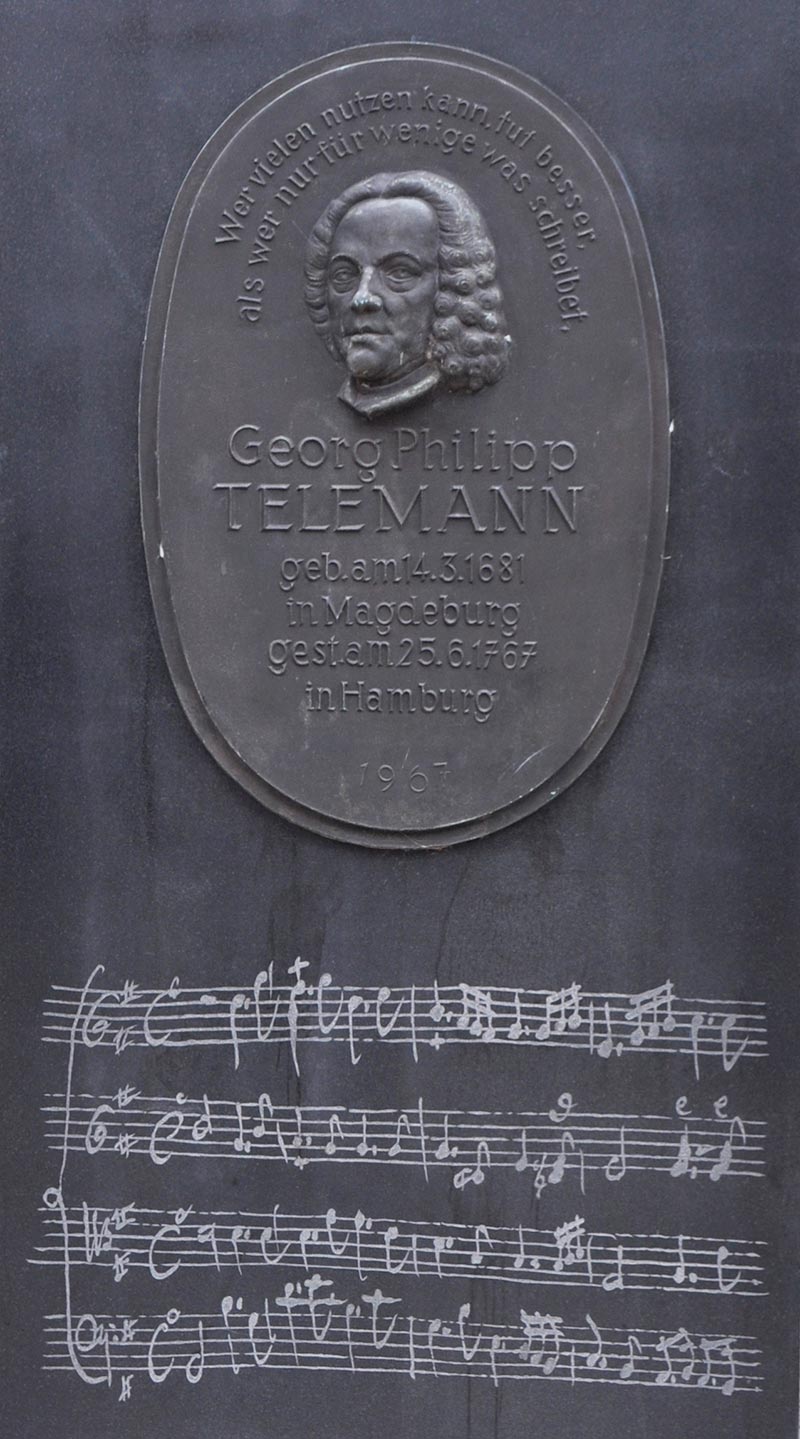
Memorial to Telemann in his birthplace of Magdeburg, Saxony-Anhalt, Germany
*“Luther on Music”, The Musical Quarterly, Vol. 32, no. 1, 1946.
**Britannica online

Image Credits:
1 Luther Hymnal (wikipedia.org)
2 Wittenberg Square (wikipedia.org)
3 Luther Hymn, 1 (wikipedia.org)
4 Luther Hymn, 2 (wikipedia.org)
5 Telemann (wikipedia.org)
6 Leipzig University (wikipedia.org)
7 Leipzig Opera House (wikipedia.org)
8 Leipzig Thomaskirche (wikipedia.org)
9 Leipzig Nikolaikirche (wikipedia.org)
10 Johann Sebastian Bach (wikipedia.org)
11 Carl Philipp Emanuel Bach (wikipedia.org)
12 Germanica Opera Textbook (wikipedia.org)
13 Telemann Memorial (wikipedia.org)
|






